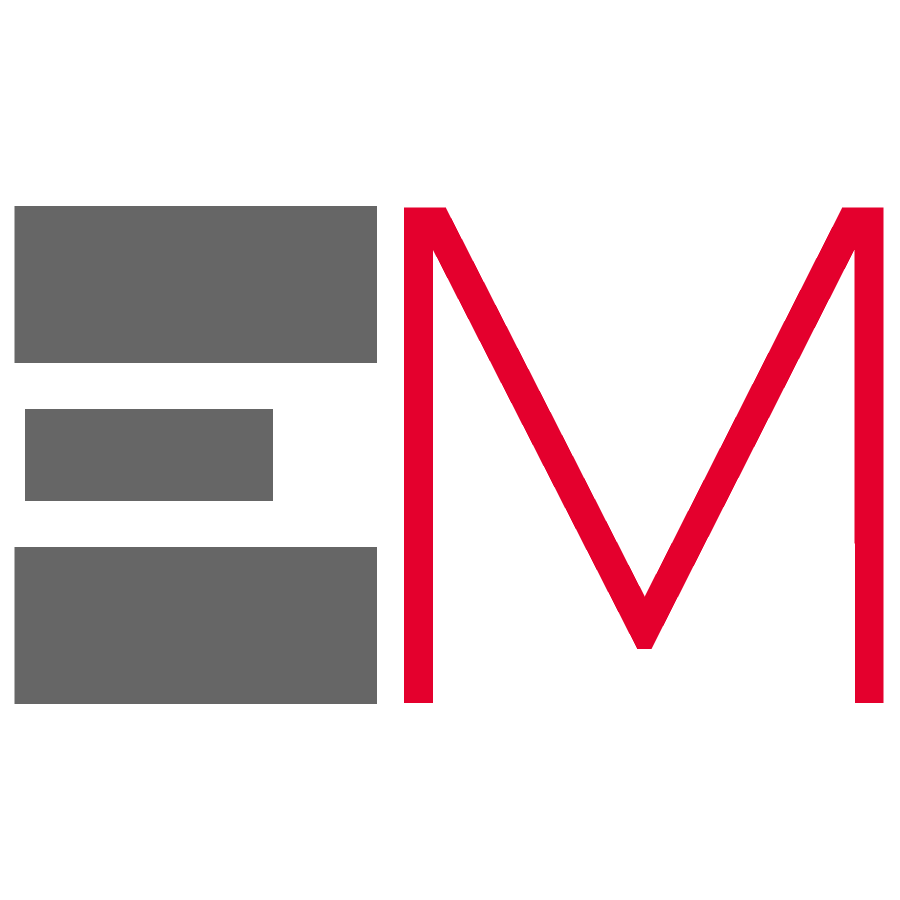
Design and Manufacturing of Custom CNC components on demand
Engmotion specializes in the production of complex CNC components for the medical, pharmaceutical, and strategic sectors
Precision and Efficiency in CNC Manufacturing at Engmotion.
Prototype and small-batch components must often meet final-use specifications from the first iteration.
Engmotion specializes in the production of CNC components for industrial applications mainly in strategic, medical and packaging sectors. It manages projects that require post-production processes such as heat treatments, multilayer anodizing, and special finishes. The company offers production flexibility and precision, both for individual components and small batches, ensuring quick delivery times.
Engmotion's traceability system is a distinctive feature, providing complete documentation for each component, including material traceability, lot history, and quality control records. This transparency is crucial in its operational sectors, where safety, compliance, and reliability are essential. Contact us and we shall help you.
Prototype and small-batch components must often meet final-use specifications from the first iteration.
Engmotion specializes in the production of CNC components for industrial applications mainly in strategic, medical and packaging sectors. It manages projects that require post-production processes such as heat treatments, multilayer anodizing, and special finishes. The company offers production flexibility and precision, both for individual components and small batches, ensuring quick delivery times.
Engmotion's traceability system is a distinctive feature, providing complete documentation for each component, including material traceability, lot history, and quality control records. This transparency is crucial in its operational sectors, where safety, compliance, and reliability are essential. Contact us and we shall help you.
Understanding CNC Manufacturing
CNC manufacturing utilizes computer-controlled machines to produce intricate parts and products. These machines perform tasks like cutting, drilling, and shaping materials with exceptional accuracy, following pre-programmed instructions. This guide explores the CNC manufacturing process and how it enhances operational efficiency.
Quoting and Planning: Building the Foundation
Every successful CNC project starts with a precise quote. In this phase, engineers thoroughly evaluate the project's scope, understanding the client’s vision while anticipating potential challenges. Accurate details are critical, especially for high-performance manufacturing units.
Project managers carefully review technical sketches, material specifications, and the product’s intended use. This detailed analysis leads to a comprehensive quote outlining costs, timelines, and necessary resources, laying the groundwork for flawless CNC manufacturing.
Sourcing Materials: Ensuring Quality Inputs
Once the quote is finalized, the next step is sourcing the right materials. The Engmotion's Area's extensive network of suppliers offers access to premium materials like aluminum alloys and exotic metals. Securing high-grade materials is crucial to ensuring the quality and durability of the final product.
Programming the CNC Machine: Turning Vision into Reality
The core of the CNC process lies in programming. Engineers translate digital designs into machine-readable code using CAD (Computer-Aided Design) and CAM (Computer-Aided Manufacturing) software. These tools generate toolpaths that are converted into G-code, guiding the CNC machine in shaping the raw materials.
At Engmotion, the need to create custom machines, often unique in design, demands meticulous attention during the design phase. This ensures that the CNC-produced component is fully functional or can be reworked if necessary. The communication and collaboration between the R&D engineers and the CNC machining team are crucial. This interaction is both professional and human, requiring a delicate balance to ensure that the component is:
- Easily manufacturable,
- Easily usable as intended by the engineering team,
- Modifiable if a change in usage is anticipated.
Maintaining this balance is not easy, but thanks to the commitment and dedication of the Engmotion team, it is consistently achieved.
CNC manufacturing utilizes computer-controlled machines to produce intricate parts and products. These machines perform tasks like cutting, drilling, and shaping materials with exceptional accuracy, following pre-programmed instructions. This guide explores the CNC manufacturing process and how it enhances operational efficiency.
Quoting and Planning: Building the Foundation
Every successful CNC project starts with a precise quote. In this phase, engineers thoroughly evaluate the project's scope, understanding the client’s vision while anticipating potential challenges. Accurate details are critical, especially for high-performance manufacturing units.
Project managers carefully review technical sketches, material specifications, and the product’s intended use. This detailed analysis leads to a comprehensive quote outlining costs, timelines, and necessary resources, laying the groundwork for flawless CNC manufacturing.
Sourcing Materials: Ensuring Quality Inputs
Once the quote is finalized, the next step is sourcing the right materials. The Engmotion's Area's extensive network of suppliers offers access to premium materials like aluminum alloys and exotic metals. Securing high-grade materials is crucial to ensuring the quality and durability of the final product.
Programming the CNC Machine: Turning Vision into Reality
The core of the CNC process lies in programming. Engineers translate digital designs into machine-readable code using CAD (Computer-Aided Design) and CAM (Computer-Aided Manufacturing) software. These tools generate toolpaths that are converted into G-code, guiding the CNC machine in shaping the raw materials.
At Engmotion, the need to create custom machines, often unique in design, demands meticulous attention during the design phase. This ensures that the CNC-produced component is fully functional or can be reworked if necessary. The communication and collaboration between the R&D engineers and the CNC machining team are crucial. This interaction is both professional and human, requiring a delicate balance to ensure that the component is:
- Easily manufacturable,
- Easily usable as intended by the engineering team,
- Modifiable if a change in usage is anticipated.
Maintaining this balance is not easy, but thanks to the commitment and dedication of the Engmotion team, it is consistently achieved.
Machining Process: Precision in Action
With the machine programmed, the CNC process begins. The machine follows the coded instructions to perform various tasks like milling, turning, and drilling. The precision of CNC technology allows for the creation of complex geometries that traditional methods cannot achieve, ensuring that every part meets exact specifications.
However, even with the advanced precision of CNC machines, the human element remains crucial. While machines are incredibly accurate, overlooking human error or the inherent limitations of machine precision can lead to non-conforming parts. It is a common misconception to rely solely on the machine’s accuracy with the assumption that “the machine is precise.” While this is partly true, the role of human oversight in controlling and resolving issues during the process is absolutely indispensable.
This need for vigilance extends beyond the machining process itself. Once a component is completed, a thorough inspection is non-negotiable. Skipping this step could lead to significant last-minute issues, whether internally or with the final client. Ensuring that every component is meticulously verified is essential for maintaining quality and avoiding costly problems down the line.
Inspection and Quality Control: Ensuring Perfection
The final step in the CNC manufacturing process is inspection and quality control. In industries where precision is paramount, it is essential to ensure that every part produced meets stringent specifications. Advanced tools like micrometers and Coordinate Measuring Machines (CMMs) are used to verify dimensional accuracy, while non-destructive testing methods assess the material's integrity.
Conclusion
CNC manufacturing revolutionizes production by integrating computers with machine tools, automating and controlling the entire manufacturing cycle. This technology eliminates the need for manual operations, significantly reducing production time while ensuring consistent, high-quality output.
With the machine programmed, the CNC process begins. The machine follows the coded instructions to perform various tasks like milling, turning, and drilling. The precision of CNC technology allows for the creation of complex geometries that traditional methods cannot achieve, ensuring that every part meets exact specifications.
However, even with the advanced precision of CNC machines, the human element remains crucial. While machines are incredibly accurate, overlooking human error or the inherent limitations of machine precision can lead to non-conforming parts. It is a common misconception to rely solely on the machine’s accuracy with the assumption that “the machine is precise.” While this is partly true, the role of human oversight in controlling and resolving issues during the process is absolutely indispensable.
This need for vigilance extends beyond the machining process itself. Once a component is completed, a thorough inspection is non-negotiable. Skipping this step could lead to significant last-minute issues, whether internally or with the final client. Ensuring that every component is meticulously verified is essential for maintaining quality and avoiding costly problems down the line.
Inspection and Quality Control: Ensuring Perfection
The final step in the CNC manufacturing process is inspection and quality control. In industries where precision is paramount, it is essential to ensure that every part produced meets stringent specifications. Advanced tools like micrometers and Coordinate Measuring Machines (CMMs) are used to verify dimensional accuracy, while non-destructive testing methods assess the material's integrity.
Conclusion
CNC manufacturing revolutionizes production by integrating computers with machine tools, automating and controlling the entire manufacturing cycle. This technology eliminates the need for manual operations, significantly reducing production time while ensuring consistent, high-quality output.
- For Engmotion, the challenge of producing custom and often unique machines requires not only technical expertise but also exceptional collaboration between design and manufacturing teams. Their commitment ensures that every CNC-manufactured component is not only perfectly functional but also adaptable to future needs. Moreover, the critical role of human oversight throughout the process—from initial design to final inspection—cannot be overstated. It is this combination of cutting-edge technology and human expertise that makes Engmotion a trusted partner in precision manufacturing.
The Process. Easy, Smart, Fast.
- Design results are shared and approved.
- Prototype design is transferred to pre-production
- Integrated ERP system is updated
- Manufacturing drawings and instructions are ready for CNC Manufacturing
- Our Partner can follow step by step any new PCB fixture realization process. We give him full control in every stage
- Production finish. Parts metrology verifcation.
- LHR completed.
- Part and full set of documentation shipped to customer

MANUFACTURING CONSOLIDATED
At the end of the process, our partner has a full design and manufacturing control. Design requirements, BOM, complete set of original drawings, manufacturing instructions and tests are transferred to him and continously updated according the design process control and improvements required.
At the same time he has also complete control of costs and support in case he needs to transfer again the production or to scale it up.
At the same time he has also complete control of costs and support in case he needs to transfer again the production or to scale it up.
Our Contacts
Feel free to write and call us. We really love to communicate with our clients.
